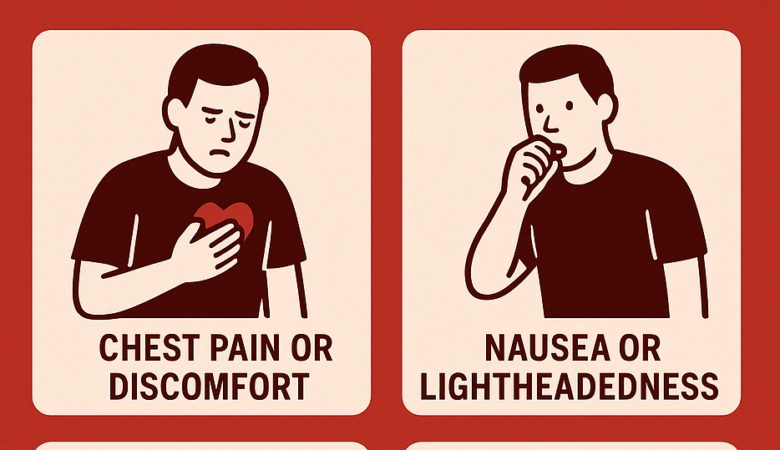The Link Between Air Pollution And Heart Disease: What You Need To Know
Air pollution has emerged as one of the most serious yet underestimated threats to heart health in modern urban life. In cities like Pune, increasing traffic, construction activity, and industrial emissions have led to rising pollution levels, directly affecting cardiovascular well-being. At Hridaymitra Cardiac Clinic, Dr. Rahul Sawant frequently highlights that polluted air does not just affect the lungs—it places continuous stress on the heart and blood vessels, often leading to long-term heart disease. What Is Air Pollution And Why Is It Harmful? Air pollution is a mixture of harmful substances such as fine particulate matter (PM2.5 and PM10), nitrogen dioxide, sulfur dioxide, carbon monoxide, and ozone. These pollutants mainly originate from vehicle exhaust, factories, burning of fuels, and construction dust. When inhaled regularly, they enter the lungs and bloodstream, triggering harmful reactions throughout the body. How Does Air Pollution Directly Affect The Heart? Once pollutants enter the bloodstream, they cause inflammation and oxidative stress. This leads to: Damage to blood vessel lining Reduced elasticity of arteries Increased blood pressure Higher risk of clot formation According to Dr. Rahul Sawant, this continuous strain forces the heart to work harder, increasing the chances of heart attacks, heart failure, and rhythm disorders over time. Can Long-Term Exposure Lead To Chronic Heart Disease? Yes. Long-term exposure is far more harmful. Continuous inhalation of polluted air accelerates atherosclerosis, a condition where arteries become narrow and stiff due to plaque buildup. Over years, this can silently progress into serious heart disease, even in individuals without obvious symptoms. Who Is At The Highest Risk From Air Pollution? Certain groups face higher risk, including: Elderly individuals People with high blood pressure, diabetes, or high cholesterol Smokers Individuals with existing heart conditions Those with a family history of heart disease Consulting a Best Cardiologist in Pune helps identify personal risk and preventive measures early. Can Air Pollution Trigger Heart Attacks And Stroke? Yes. Studies show a clear rise in heart attacks and strokes during days of high pollution. Pollutants increase blood thickness, promote clot formation, and reduce oxygen delivery to vital organs. This sudden stress can trigger acute cardiac events, especially in people with underlying heart issues. Does Air Pollution Affect Blood Pressure And Heart Rhythm? Polluted air causes narrowing of blood vessels, leading to elevated blood pressure. It can also interfere with the heart’s electrical system, resulting in palpitations or irregular heartbeat. Many patients visiting a heart specialist pune report worsening symptoms during high-pollution periods. Is Indoor Air Pollution Also A Risk For The Heart? Not always. Indoor air pollution from cooking smoke, incense sticks, poor ventilation, chemical cleaners, and tobacco smoke can be equally harmful. At Hridaymitra Cardiac Clinic, patients are advised to maintain proper ventilation and consider air purifiers to reduce indoor exposure. How Does Air Pollution Affect Younger Adults? Yes. Increasing pollution levels have led to early signs of cardiovascular stress in younger adults, including elevated blood pressure, reduced exercise capacity, and early artery stiffness. This shift makes regular heart screening important even before middle age. Can Air Pollution Cause Silent Heart Damage? One of the biggest dangers of air pollution is that it often causes silent damage. Narrowing of arteries, mild inflammation, and reduced heart efficiency may not cause immediate symptoms. Many people discover the problem only after a major cardiac event, which is why preventive check-ups at a best cardiologist hospital in pune are crucial. How Does Pollution Impact Heart Recovery And Existing Conditions? Yes. Patients recovering from heart procedures or living with heart disease may experience slower recovery due to reduced oxygen supply and ongoing inflammation. Exposure to clean air plays an important role in healing and long-term heart stability. Can Lifestyle Choices Reduce Pollution-Related Heart Risk? Simple measures can significantly reduce risk: Avoid outdoor activity during peak pollution hours Exercise indoors on high-pollution days Use masks when air quality is poor Eat a diet rich in antioxidants Stay hydrated and manage stress Dr. Rahul Sawant emphasizes that combining healthy habits with medical guidance can greatly reduce pollution-induced heart damage. When Should You Consult A Cardiologist? You should seek medical advice if you experience: Chest pain or heaviness Shortness of breath Frequent fatigue Palpitations Dizziness Visiting a trusted heart clinic In Pune ensures timely diagnosis and preventive care. Why Choose Hridaymitra Cardiac Clinic For Heart Care? At Hridaymitra Cardiac Clinic, patients receive: Personalized heart risk assessment Advanced diagnostic facilities Preventive cardiology guidance Long-term heart health monitoring Under the expert care of Dr. Rahul Sawant, the clinic focuses on protecting heart health against modern urban risks like air pollution. Air pollution is an unavoidable reality of city life, but heart disease does not have to be. Understanding the link between polluted air and heart health empowers individuals to take preventive action. With awareness, lifestyle changes, and expert cardiac care, it is possible to protect your heart even in a polluted environment. If you are concerned about the impact of air pollution on your heart, consult Hridaymitra Cardiac Clinic and take a proactive step toward a healthier, stronger heart. Address: 1st Floor, Pushpa Prestige City Pride Chouk, Pune – Satara Rd, opposite Hotel Utsav Deluxe, Adinath Society, Parvati Industrial Estate, Parvati Paytha, Pune, Maharashtra 411009 Call: 90219 40551 Get Direction











